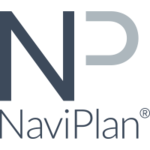Description

FactSet

DiligenceVault
Comprehensive Overview: FactSet vs DiligenceVault
FactSet
a) Primary Functions and Target Markets
FactSet is a financial data and software company that provides integrated solutions for investment professionals. Its primary functions include:
- Financial Data and Analytics: FactSet aggregates and provides financial data, analytics, and analysis tools.
- Portfolio Management: Tools for portfolio and risk management, performance analysis, and reporting.
- Research and Advisory: Enables users to perform in-depth research with a wide variety of datasets and analysis tools.
- Trading Solutions: Offers trading execution, data, and analytics platforms for traders.
Target Market: FactSet primarily serves investment management firms, hedge funds, banks, brokerage firms, and other financial services organizations looking for comprehensive data and analytics solutions.
b) Market Share and User Base
FactSet is a major player in the financial data services industry, competing with Bloomberg, Refinitiv, and S&P Capital IQ. While it has a significant user base, particularly among smaller to mid-sized firms, it faces intense competition from Bloomberg which generally is perceived to have the largest market share due to its comprehensive terminal service. FactSet's market share is substantial but often regarded as less than Bloomberg's.
c) Key Differentiating Factors
- Customization and Integration: FactSet is often praised for its customizable interface and ability to integrate with various enterprise systems.
- Focused User Experience: Known for a user-friendly experience tailored specifically for financial professionals.
- Cost Efficiency: Typically, FactSet offers more competitive pricing compared to Bloomberg, making it attractive for smaller firms.
DiligenceVault
a) Primary Functions and Target Markets
DiligenceVault is a digital diligence platform designed to optimize due diligence processes through technology. Its primary functions include:
- Due Diligence Management: Offers a platform to manage due diligence questionnaires and requests.
- Collaboration Tools: Facilitates collaboration between asset managers and investors through a shared digital workspace.
- Data Collection and Standardization: Provides tools for structured data collection and standardized processes across diligence workflows.
Target Market: DiligenceVault targets asset owners, allocators, fund managers, and other institutional investors who require efficient due diligence and reporting processes.
b) Market Share and User Base
DiligenceVault's market share and user base are more niche, reflecting its specialized focus. The platform is popular among institutional investors for its ability to streamline due diligence processes and provide a scalable solution for data collection and analysis. It's a smaller player compared to broad analytics providers like FactSet.
c) Key Differentiating Factors
- Specialization in Due Diligence: DiligenceVault's exclusive focus on due diligence processes sets it apart as a specialist tool rather than a general financial data platform.
- Collaboration Features: Offers robust features for collaboration and communication between stakeholders in the diligence process.
- Valuable Integrations: Provides seamless API integrations with other data platforms and systems.
Ledgy
a) Primary Functions and Target Markets
Ledgy is an equity management software designed for startups and investors. Its primary functions include:
- Cap Table Management: Offers tools to manage and visualize cap tables.
- Stakeholder Engagement: Enables startups to manage stakeholder relations and communications effectively.
- Employee Equity Management: Facilitates the administration of employee stock options and vesting schedules.
Target Market: Ledgy targets startups, scale-ups, and venture capital firms, aiming to optimize equity management processes for growing companies.
b) Market Share and User Base
Ledgy is relatively smaller compared to FactSet or DiligenceVault in terms of user base, as it focuses on a niche market—startups and scale-ups. It's growing in popularity within the startup ecosystem in Europe and is expanding its global presence.
c) Key Differentiating Factors
- Startup-Focused Features: Designed with features specific to the needs of startups and high-growth companies.
- Automation and Efficiency: Offers automation for equity-related tasks, aiming for simplicity in managing complex equity structures.
- User-Friendly Interface: Known for its intuitive interface tailored for non-financial users, such as startup founders and employees.
Comparative Summary
In summary, while FactSet is a broad-based financial data and analytics provider with a significant market presence, DiligenceVault serves a niche market focusing on due diligence processes for institutional investors. On the other hand, Ledgy caters specifically to startups and venture firms with its equity management solution. Their differentiating factors lie in the unique features and user experiences tailored to their target markets, with FactSet offering widespread data tools, DiligenceVault specializing in due diligence, and Ledgy focusing on startup equity management.
Contact Info

Year founded :
1978
Not Available
Not Available
United States
Not Available

Year founded :
Not Available
Not Available
Not Available
Not Available
Not Available
Feature Similarity Breakdown: FactSet, DiligenceVault
When comparing FactSet, DiligenceVault, and Ledgy, it's important to recognize that these platforms cater to different aspects of financial and investment management, but they may share some core functionalities. Here's a general breakdown based on what is typically known about these platforms as of the last update:
a) Core Features in Common
-
Data Management and Analysis:
- FactSet: Primarily known for providing financial data and analytics for investment professionals, covering equities, fixed income, and more.
- DiligenceVault: Focuses on due diligence data management and collaboration for the investment management industry.
- Ledgy: Specializes in managing equity data, particularly for startups, including cap table management.
-
Collaboration Tools:
- All three platforms offer some degree of collaboration capabilities, allowing multiple stakeholders to access and share information seamlessly.
-
Security and Compliance:
- Strong emphasis on data security across all platforms, given the sensitive financial information they handle.
b) User Interface Comparison
-
FactSet:
- The interface is highly customizable and data-centric, designed for financial professionals who require complex data visualization and analysis. It is known for being very powerful but might have a steeper learning curve for new users.
-
DiligenceVault:
- This interface is designed around workflow efficiency and collaboration, with a focus on simplifying due diligence processes. It's relatively user-friendly, aiming to streamline the collection and sharing of due diligence data.
-
Ledgy:
- Ledgy's interface is intuitive and modern, designed to be accessible for startup teams and founders. It provides straightforward navigation for managing equity and tools tailored for startup environments.
c) Unique Features
-
FactSet:
- It offers comprehensive financial data integration, advanced analytical tools, and extensive market coverage. It's unique for its real-time data aggregation capabilities and profound integration with other software like Excel for financial modeling.
-
DiligenceVault:
- Unique for its focus on streamlining and automating the due diligence process in investment management, providing specific workflows, templated questionnaires, and centralized document management to enhance operational efficiency in fund of funds, asset management, and other investment settings.
-
Ledgy:
- Stands out with its focus on equity management for startups, providing unique tools for managing cap tables, ESOPs (Employee Stock Ownership Plans), and digital shareholder registers, alongside features supporting scenarios, modeling, and future funding rounds.
Overall, each platform serves a specific niche in financial and investment management. While they may share similarities in data handling and collaboration, they cater to different user needs and industries, making their interfaces and unique offerings distinctive to their target audiences.
Features

Not Available

Not Available
Best Fit Use Cases: FactSet, DiligenceVault
Certainly! Each of these platforms serves different purposes and is optimized for various types of businesses, projects, and use cases. Here’s an overview of the best-fit use cases for FactSet, DiligenceVault, and Ledgy:
FactSet
a) Best Choice For:
- Investment Management Firms: FactSet is ideal for mutual funds, hedge funds, and other institutional investors needing comprehensive financial data, analytics, and research tools.
- Financial Analysts and Consultants: These professionals within banks or advisory firms use FactSet for equity research, portfolio analysis, and market monitoring.
- Corporate Finance and Investment Banking: Teams handling mergers and acquisitions, underwriting, and financial strategy utilize FactSet for market intelligence and valuation.
d) Industry Vertical or Company Size:
- Finance and Investment Industry: FactSet caters heavily to this sector, offering tools designed for large firms with deep investment in analytics.
- Medium to Large Enterprises: It is generally used by larger organizations that have dedicated teams or departments focusing on financial analysis and decision-making requiring extensive data.
DiligenceVault
b) Preferred Option:
- Due Diligence Teams: Ideal for investment managers, allocators, and advisory firms that need to streamline the due diligence process.
- Asset Managers and Allocators: Those managing portfolios and investments requiring comprehensive and efficient vetting of potential investments.
d) Industry Vertical or Company Size:
- Private Equity and Venture Capital Firms: Especially useful in these sectors where due diligence processes are intricate and data-heavy.
- Small to Medium Enterprises: While DiligenceVault can be adopted by larger companies, it is particularly advantageous for SMEs due to its focus on improving operational efficiencies in managing due diligence data.
Ledgy
c) Consideration:
- Startups and Emerging Companies: Ledgy is tailored for companies in the early stages or those who need to effectively manage cap tables and equity plans.
- Companies with Complex Equity Structures: Organizations with multiple rounds of funding, diverse investor bases, and employee stock option plans will benefit from Ledgy’s features.
d) Industry Vertical or Company Size:
- Technology and Innovation-driven Industries: Predominantly used in sectors where equity management is critical, such as tech startups.
- Small to Medium-sized Enterprises and Startups: Ledgy is often chosen by companies in growth phases where managing ownership and equity incentives is crucial for talent retention and investor relations.
Each of these platforms excels in different user scenarios based on the specific needs and stages of the businesses or projects they serve. Understanding these distinctions helps organizations choose the best tool that aligns with their strategic goals.
Pricing

Pricing Not Available

Pricing Not Available
Metrics History
Metrics History
Comparing undefined across companies
Conclusion & Final Verdict: FactSet vs DiligenceVault
When comparing FactSet, DiligenceVault, and Ledgy, it's essential to evaluate them based on their features, usability, scalability, pricing, and the specific needs they address for different users. Here's a breakdown and final assessment to help users make an informed decision:
Conclusion and Final Verdict
a) Best Overall Value
DiligenceVault offers the best overall value for users focused on due diligence and data management within investment workflows. It excels in providing a collaborative platform specifically designed to facilitate investor and fund manager interactions, making it highly valuable for asset managers and institutional investors. The cost-effectiveness relative to its specialized focus in this niche sets it apart for those particular needs.
b) Pros and Cons
FactSet:
- Pros:
- Comprehensive financial data and analytics platform.
- Extensive market data sources and robust analytical tools.
- Integration capabilities with various systems and platforms.
- Strong support and training resources.
- Cons:
- Can be expensive, particularly for smaller firms or individual users.
- Complexity may lead to a steep learning curve.
- Overwhelming for those seeking simple solutions or not in need of broad financial data access.
DiligenceVault:
-
Pros:
- Tailored for due diligence, making it ideal for investment decision processes.
- Facilitates collaboration between asset managers and investors.
- Cost-effective for targeted niche.
- User-friendly interface with a deliberate focus on simplifying investment workflows.
-
Cons:
- Less suited for users needing expansive financial data and broad analytics.
- May not be as comprehensive as FactSet for general market analysis.
Ledgy:
-
Pros:
- Excels in equity management and cap table management for startups and growth companies.
- User-friendly and visually appealing with straightforward usability.
- Ideal for managing employee stock ownership plans and investor relations.
-
Cons:
- Limited functionality regarding market data and broader financial analytics.
- Not suitable for those seeking intricate financial data or due diligence processes.
c) Specific Recommendations
-
If your primary need is financial data analytics and comprehensive market data, FactSet is the preferable choice due to its extensive datasets and powerful analytical tools. Firms that require deep dives into financials, global market data, and intricate reporting will find this platform invaluable.
-
For users focused on due diligence and investment workflows, particularly in asset management, DiligenceVault stands out. It should be the go-to for those looking for a collaborative space dedicated to streamlining due diligence and communication between fund managers and investors.
-
For startups and companies managing shareholder relations and equity, Ledgy is the best option. Its intuitive interface and specialized functionalities in cap table management make it the ideal tool for growth-oriented businesses needing to handle equity distribution efficiently.
Ultimately, the choice between these platforms largely depends on your specific needs and the functional areas you prioritize. Each has its strengths tailored towards particular industry applications, ensuring that there's a suitable option for varied financial, investment, and equity management requirements.




